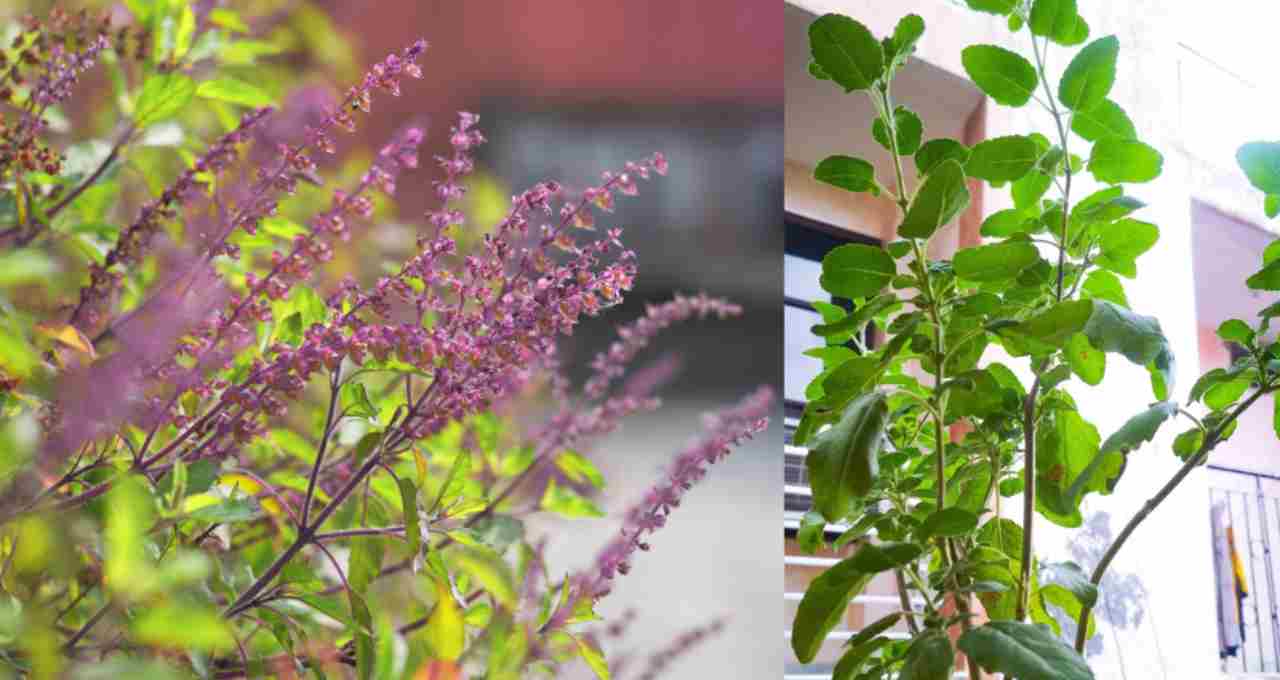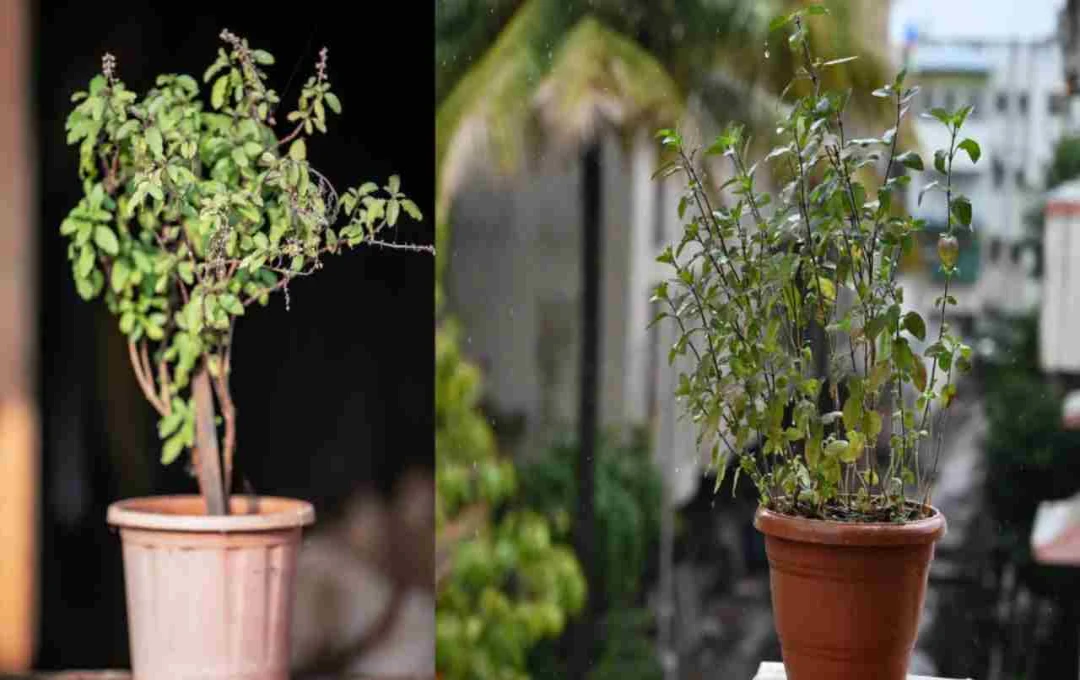According to Vastu Shastra, placing a Tulsi (holy basil) plant in the north or east direction of the house is considered auspicious. Planting Tulsi on Thursday or Friday, especially in the months of Kartik and Chaitra, ensures happiness, prosperity, and the blessings of Goddess Lakshmi in the house. Maintaining cleanliness and following the rules of worship are essential.
Tulsi Ke Niyam: In Sanatan Dharma, the Tulsi plant holds special significance and is considered the abode of Goddess Lakshmi, the deity of wealth. According to Vastu, it is best to plant Tulsi in the north or east direction of the house. Planting the plant on Thursday or Friday and offering regular prayers brings happiness, peace, financial prosperity, and positive energy into life.
Auspicious Direction for Planting Tulsi
According to Vastu Shastra, it is considered best to plant the Tulsi plant in the north or east direction of the house. This direction not only brings happiness and prosperity to the house but also ensures that the blessings of Goddess Lakshmi remain on the family members. If the Tulsi plant is planted in the right direction, it leads to an increase in wealth and property in the house.
According to religious beliefs, the Tulsi plant should always be planted in a clean place. It should not be planted near the main entrance of the house but rather in the courtyard or domestic area. Always choose a place to plant Tulsi where there is sufficient sunlight and the surrounding environment is clean.
Auspicious Day and Month for Planting Tulsi

Thursday and Friday are considered extremely auspicious days for planting the Tulsi plant. In addition, planting Tulsi in the months of Kartik and Chaitra holds special significance. Planting Tulsi at these times ensures the presence of Goddess Lakshmi in the house and the family remains financially b.
The process of planting the Tulsi plant also includes worship and lighting a lamp. After planting it, water should be given regularly, cleanliness should be maintained, and Tulsi leaves should be offered as bhog (offering).
Special Rules Related to Tulsi
- The Tulsi plant should always be in a clean place.
- Dirty utensils should not be kept near the plant.
- Tulsi should be worshiped daily by lighting a lamp.
- Including Tulsi leaves in the offerings is considered auspicious.
- Water should not be offered to Tulsi on Ekadashi and Sunday.
- Breaking leaves or offering water on the day of Ekadashi invalidates the fast.
It is said in religious texts that the Tulsi plant not only maintains the purity of the house, but planting and worshiping it ensures that there is no shortage of food and wealth.
Tulsi and Goddess Lakshmi
Goddess Lakshmi is believed to reside in the Tulsi plant. Planting it in the right direction in the house ensures wealth, property, happiness, and peace. This plant removes negative energy and maintains a positive environment in the family.
According to Vastu and religious beliefs, planting Tulsi in the right direction and worshiping it regularly prevents financial difficulties in the house. This plant is also a symbol of wealth and prosperity for the house.
Points to Note During Worship and Fasting
Pay special attention to cleanliness around Tulsi during worship. There should not be any kind of dirty utensils or dirt near the Tulsi plant. Offering Tulsi leaves as an offering during worship is considered auspicious.
According to religious texts, the influence of negative forces is reduced in the life of a person who regularly worships Tulsi, and spiritual energy is transmitted.















